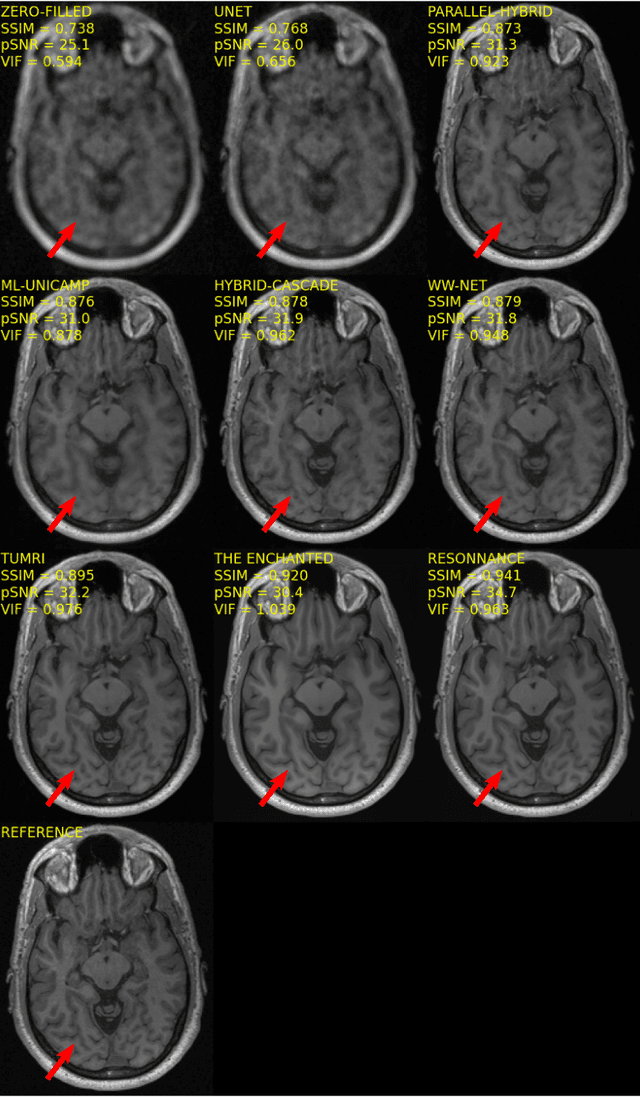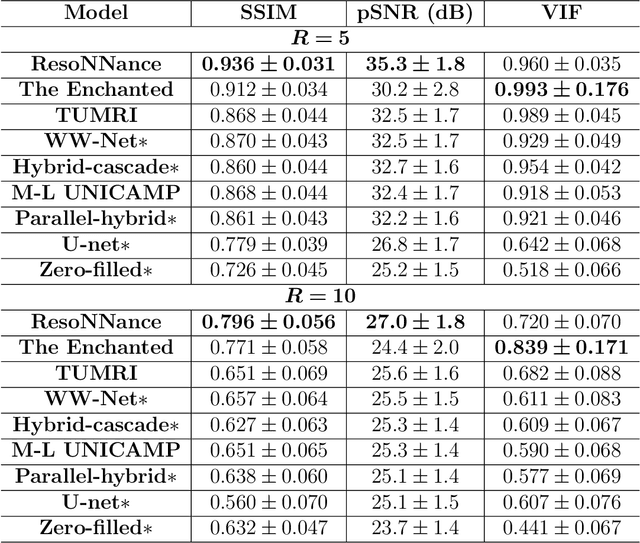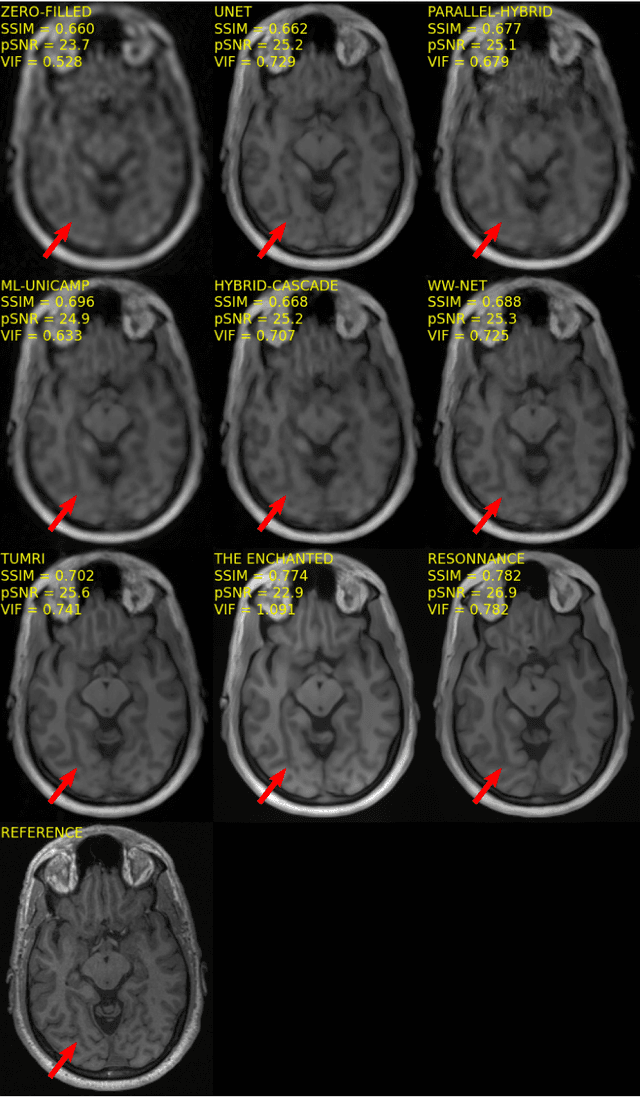Amrit Kumar Jethi
HyperCoil-Recon: A Hypernetwork-based Adaptive Coil Configuration Task Switching Network for MRI Reconstruction
Aug 09, 2023



Abstract:Parallel imaging, a fast MRI technique, involves dynamic adjustments based on the configuration i.e. number, positioning, and sensitivity of the coils with respect to the anatomy under study. Conventional deep learning-based image reconstruction models have to be trained or fine-tuned for each configuration, posing a barrier to clinical translation, given the lack of computational resources and machine learning expertise for clinicians to train models at deployment. Joint training on diverse datasets learns a single weight set that might underfit to deviated configurations. We propose, HyperCoil-Recon, a hypernetwork-based coil configuration task-switching network for multi-coil MRI reconstruction that encodes varying configurations of the numbers of coils in a multi-tasking perspective, posing each configuration as a task. The hypernetworks infer and embed task-specific weights into the reconstruction network, 1) effectively utilizing the contextual knowledge of common and varying image features among the various fields-of-view of the coils, and 2) enabling generality to unseen configurations at test time. Experiments reveal that our approach 1) adapts on the fly to various unseen configurations up to 32 coils when trained on lower numbers (i.e. 7 to 11) of randomly varying coils, and to 120 deviated unseen configurations when trained on 18 configurations in a single model, 2) matches the performance of coil configuration-specific models, and 3) outperforms configuration-invariant models with improvement margins of around 1 dB / 0.03 and 0.3 dB / 0.02 in PSNR / SSIM for knee and brain data. Our code is available at https://github.com/sriprabhar/HyperCoil-Recon
Multi-channel MR Reconstruction (MC-MRRec) Challenge -- Comparing Accelerated MR Reconstruction Models and Assessing Their Genereralizability to Datasets Collected with Different Coils
Nov 10, 2020



Abstract:The 2020 Multi-channel Magnetic Resonance Reconstruction (MC-MRRec) Challenge had two primary goals: 1) compare different MR image reconstruction models on a large dataset and 2) assess the generalizability of these models to datasets acquired with a different number of receiver coils (i.e., multiple channels). The challenge had two tracks: Track 01 focused on assessing models trained and tested with 12-channel data. Track 02 focused on assessing models trained with 12-channel data and tested on both 12-channel and 32-channel data. While the challenge is ongoing, here we describe the first edition of the challenge and summarise submissions received prior to 5 September 2020. Track 01 had five baseline models and received four independent submissions. Track 02 had two baseline models and received two independent submissions. This manuscript provides relevant comparative information on the current state-of-the-art of MR reconstruction and highlights the challenges of obtaining generalizable models that are required prior to clinical adoption. Both challenge tracks remain open and will provide an objective performance assessment for future submissions. Subsequent editions of the challenge are proposed to investigate new concepts and strategies, such as the integration of potentially available longitudinal information during the MR reconstruction process. An outline of the proposed second edition of the challenge is presented in this manuscript.
 Add to Chrome
Add to Chrome Add to Firefox
Add to Firefox Add to Edge
Add to Edge